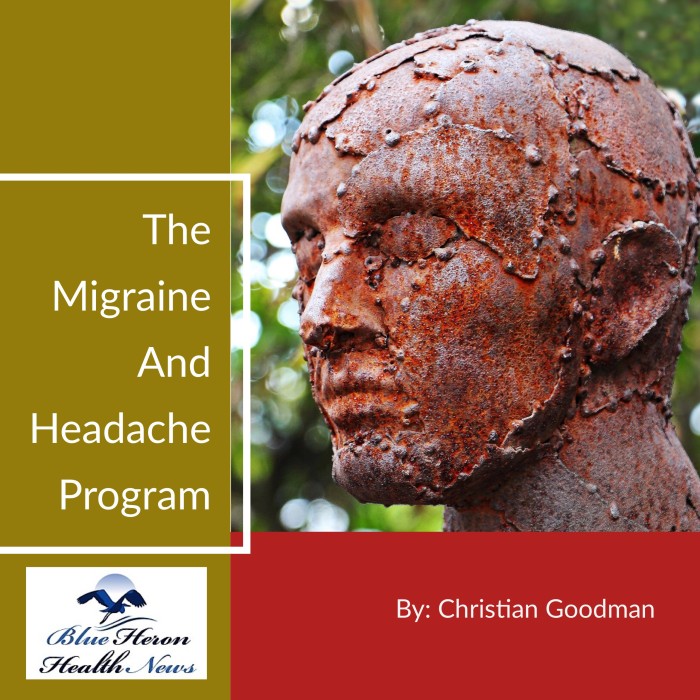
The Migraine And Headache Program By Christian Goodman This program has been designed to relieve the pain in your head due to any reason including migraines efficiently and effectively. The problem of migraine and headaches is really horrible as it compels you to sit in a quiet and dark room to get quick relief. In this program more options to relieve this pain have been discussed to help people like you.
How does stress contribute to migraines?
Stress is one of the most common triggers for migraines, and it can significantly contribute to both the frequency and severity of migraine attacks. The relationship between stress and migraines is complex, involving the brain, nervous system, hormones, and blood vessels. Here’s how stress contributes to migraines:
1. Activation of the Stress Response
- Fight-or-Flight Response: When a person is under stress, the body activates the “fight-or-flight” response, releasing stress hormones such as cortisol and adrenaline (epinephrine). These hormones prepare the body to react to perceived danger, increasing heart rate, blood pressure, and muscle tension. This heightened state of arousal can trigger a migraine by increasing tension in the muscles around the head and neck and altering blood flow in the brain.
- Nervous System Sensitization: Stress activates the autonomic nervous system, particularly the sympathetic nervous system, which can heighten sensitivity to pain. This can exacerbate the experience of pain during a migraine, making the headaches more intense.
2. Impact on Neurotransmitters
- Serotonin Dysregulation: Stress affects the levels of neurotransmitters like serotonin, which plays a critical role in regulating mood, pain perception, and blood vessel function. Low levels of serotonin are thought to be linked to migraine development. Stress can deplete serotonin levels, leading to changes in blood vessels and triggering a migraine attack.
- Dopamine and Other Neurotransmitters: Stress also influences other neurotransmitters, such as dopamine and norepinephrine, which affect mood, pain pathways, and brain function. Imbalances in these neurotransmitters due to stress can contribute to the onset of migraines.
3. Muscle Tension
- Tension in the Head and Neck: Stress often leads to muscle tension, particularly in the neck, shoulders, and scalp. This tension can contribute to migraines, especially in people prone to tension-type headaches that evolve into migraines. Tight muscles can constrict blood vessels and irritate nerves, increasing the likelihood of a migraine.
- Physical Strain: Stress-induced muscle tension can lead to physical strain, exacerbating pain and discomfort during a migraine attack. This combination of muscle pain and migraine can worsen the overall experience and prolong recovery.
4. Cortisol and Inflammation
- Chronic Stress and Cortisol: Chronic stress leads to prolonged elevation of cortisol levels, which can contribute to inflammation in the body. Inflammation, particularly in the blood vessels and nerves around the brain, is a known factor in the development of migraines. This inflammation can exacerbate the vascular changes that occur during a migraine, such as the dilation and constriction of blood vessels.
- Pro-Inflammatory Cytokines: Stress can also increase the production of pro-inflammatory cytokines (immune system molecules that promote inflammation). These cytokines may contribute to the inflammation seen in migraines, particularly in the trigeminal nerve pathway, which is involved in migraine pain.
5. Psychological Factors
- Anxiety and Depression: Stress is closely linked to psychological conditions such as anxiety and depression, both of which are known to increase the risk of migraines. People who experience chronic stress are more likely to develop anxiety or depression, which can worsen migraine symptoms and make attacks more frequent.
- Anticipatory Anxiety: Many migraine sufferers experience anticipatory anxiety—the fear of having a migraine attack, particularly in stressful situations. This anxiety can itself trigger migraines, creating a vicious cycle where stress and the fear of migraines perpetuate each other.
6. Impact on Sleep
- Sleep Disturbances: Stress often disrupts sleep patterns, leading to insomnia, restless sleep, or poor-quality sleep. Sleep deprivation is a well-known migraine trigger, as it reduces the body’s ability to recover and regulate neurotransmitters. Stress-related sleep disturbances can therefore exacerbate migraines, making them more frequent and severe.
- Non-Restorative Sleep: Even when individuals with stress manage to sleep, the sleep may be non-restorative, meaning that they wake up feeling tired. This lack of restful sleep can contribute to the onset of migraines.
7. Behavioral Changes
- Stress-Related Lifestyle Choices: When under stress, individuals may engage in behaviors that increase their risk of migraines. For example:
- Skipping Meals: Stress can lead to irregular eating habits, such as skipping meals or eating unhealthy foods, which can trigger migraines due to fluctuations in blood sugar levels.
- Caffeine and Alcohol Consumption: Some people may increase their intake of caffeine or alcohol as a way to cope with stress, both of which are known migraine triggers.
- Physical Inactivity or Overexertion: Stress can either lead to reduced physical activity (due to lack of motivation) or overexertion (due to trying to cope through excessive exercise). Both extremes can contribute to migraines.
8. Stress “Let-Down” Effect
- Post-Stress Migraine: Interestingly, migraines may not always occur during periods of high stress. Many people experience migraines after a stressful event or situation has passed, a phenomenon known as the stress “let-down” effect. For example, migraines may occur during the weekend after a stressful workweek or after a significant life event. This may be due to fluctuations in stress hormones as the body returns to a relaxed state.
Conclusion:
Stress is a major contributor to migraines through its effects on the nervous system, neurotransmitter levels, muscle tension, inflammation, and lifestyle behaviors. Chronic stress can both trigger and exacerbate migraines, creating a cycle where stress leads to migraine attacks, which in turn cause more stress. Managing stress through relaxation techniques, cognitive-behavioral therapy, exercise, and proper sleep hygiene is a critical component of preventing and reducing migraine frequency and severity.

The Migraine And Headache Program By Christian Goodman This program has been designed to relieve the pain in your head due to any reason including migraines efficiently and effectively. The problem of migraine and headaches is really horrible as it compels you to sit in a quiet and dark room to get quick relief. In this program more options to relieve this pain have been discussed to help people like you.